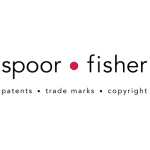Fighting counterfeiting in Africa is multi-faceted. It obviously involves trade mark enforcement. However, it also involves building close relationships with the enforcement authorities, and this includes training.
Enforcement activity
When it comes to enforcement, the priority is to ensure that the counterfeit goods are seized. The longer-term objective is generally to ensure that one or more of the following things happen:
The counterfeit goods are destroyed;
The counterfeiter signs an acknowledgement stating that they will not deal with counterfeit goods again; and
The counterfeiter is criminally prosecuted and sentenced by a court.
Relationships
Fighting counterfeiting is a team effort. In Africa, it is essential for the brand owner, or its representative, to form close relationships with enforcement authorities and customs officials, even in those countries where there is an efficient customs recordal system. These government officials must feel that they have the support of the brand owner throughout the process, from seizure to prosecution. A critical feature of the relationship is that the brand owner must make experts available who can prove that the goods are counterfeit during criminal prosecution.
However, there is more to it than simply forming relationships – as these also need to be maintained for future operations. This is achieved through ongoing contact. The brand owner must keep close contact with the authorities and give them the support that they might need in effecting seizures.
Officials who do not feel that they have the support of the brand owner will be inefficient and unlikely to pursue matters or conduct seizures as vigorously as they should.
Brand identification training
The training of enforcement authorities (customs or police) is a key component of any successful anti-counterfeiting programme. Training should happen regularly. Ideally it should be conducted at the key ports of entries for counterfeit goods. Without training it will be difficult for the authorities to identify and detain suspected counterfeit goods.
In Africa, counterfeiting continues to be a challenge. However, the problem can be tackled if brand owners are prepared to invest in relationship-building and training.
Paul Ramara
Partner, Spoor & Fisher












